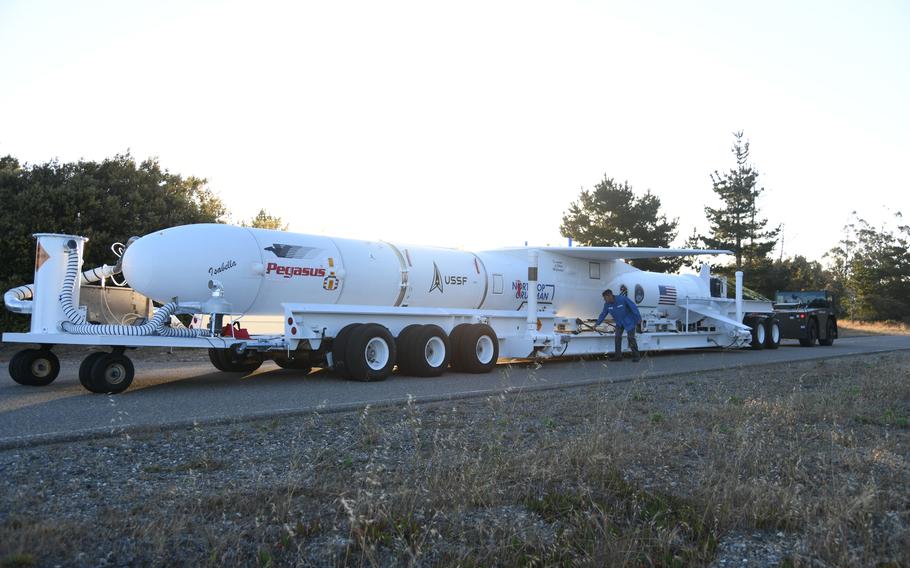
Space Launch Delta 30 provided range support for the successful launch of the Tactically Responsive Launch-2 mission for Space Force in June 2021 from Vandenberg Space Force Base, Calif. (Rocio Romo/U.S. Space Force)
Space Force wants to recruit 800 new guardians and take on more responsibility in national security with a nearly $4 billion proposed increase in funding in its 2024 budget request, officials announced Monday.
The newest service branch, which was activated three years ago, is proposing a budget of $30 billion for fiscal 2024, which starts Oct. 1. In addition to more troops, the funding boost would pay for five additional launches and a nearly two-fold increase in money for low and medium orbit missile-tracking satellites.
Space Force’s budget is nested within the Department of the Air Force’s total funding proposal of more than $215 billion for fiscal 2024.
The overall Defense Department budget request is $842 billion, which is up 3.2% from fiscal 2023. The $26 billion increase from this year’s funding includes a 5.2% salary bump for troops — the highest in 20 years. That increase would include Space Force civilians as well, according to the service’s budget presentation Monday.
The Space Force has a vital role to play in the National Defense Strategy, which has a primary focus to sustain and strengthen deterrence against China, said Kristyn Jones, acting undersecretary of the Air Force.
“Defending the nation requires constant vigilance in all domains,” she said.
As with previous budgets, the Space Force proposal focuses on research and development. The service requested more than $19 billion for 2024. The Resilient Missile Warning, Missile Tracking program for low and medium orbits and a program to prototype new technologies are slated for $1.1 billion each in funding.
Procurement is planned to receive $4.7 billion with space launches to increase from 10 to 15 in fiscal 2024.
Under the 2024 budget plan, the Space Force will take control of Joint Tactical Ground Stations from the Army, said Maj. Gen. Michael A. Greiner, deputy assistant secretary of the Air Force for budget. These forward deployed stations receive, process and disseminate direct down-linked infrared data from overhead sensors and provide real-time warning on ballistic missile launches.
The transition of these sites and 100 jobs is “ultimately consolidating global missile warning under a single military service,” Greiner said.
Space Force also requested $3.2 million to spend on retention bonuses and another $1.5 million in assignment incentive pay.